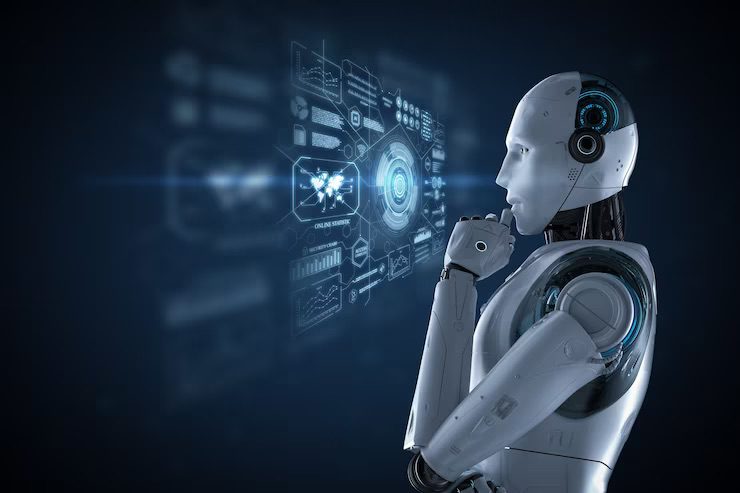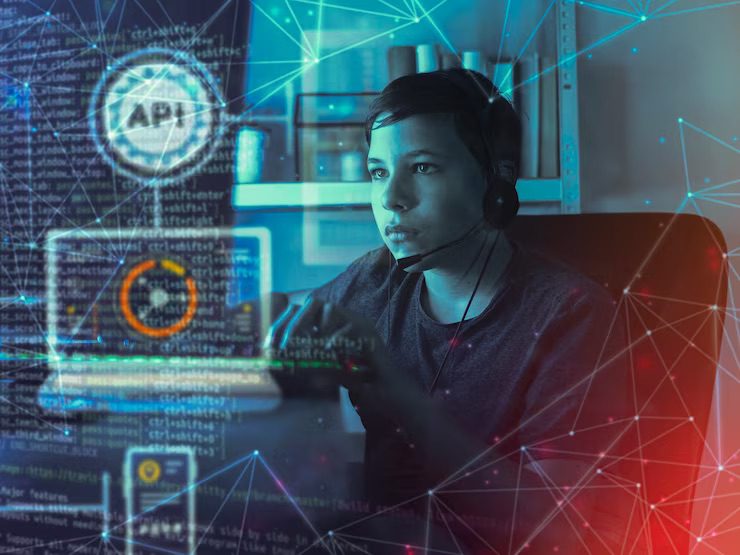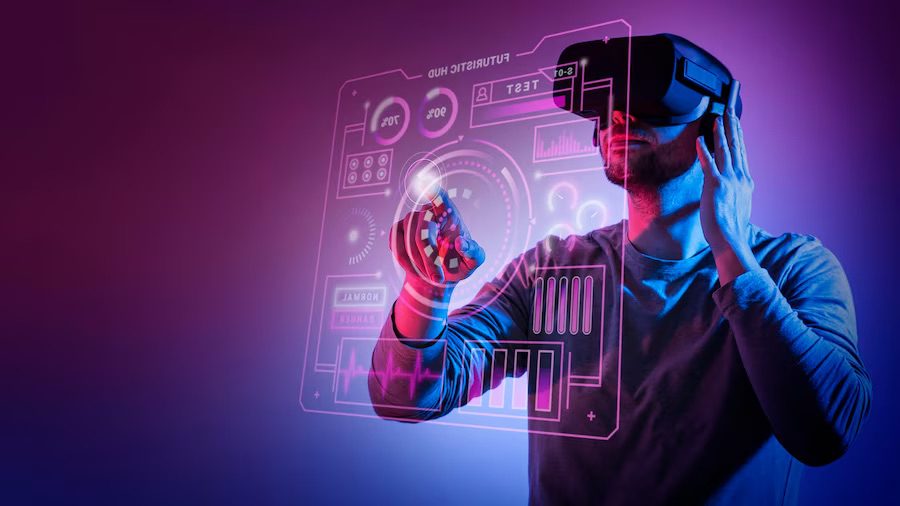The software world is on the cusp of a revolution. Artificial intelligence and machine learning have already started reshaping software development in major ways. Soon these technologies may become as vital for coders as knowing a programming language.
Consider how AI is increasingly able to generate its own code. Companies like GitHub and DeepMind have created programs that can take simple commands and churn out full applications. Developers at Google are using AI to help predict bugs and security flaws before they arise. Testing and QA are also being automated by intelligent systems.
These changes raise an important question – what does the future look like for software engineers in an AI-powered world? Will programmers eventually be replaced by machines? While apocalyptic headlines may suggest so, the reality is that AI is more likely to become a powerful partner.
The demand for skilled developers will remain, especially those fluent in directing and optimizing intelligent systems. The future for software engineering is thrillingly uncertain. AI may radically transform how code is written, but it opens up fascinating new frontiers for developers ready to ride this wave.
TLDR; AI and the Future of Software Development
- Recent advances in AI and machine learning are transforming software development
- AI can automate tasks like coding, testing, code reviews, and requirements planning
- Future impacts include faster development cycles, more reliable code, and highly customizable software
- Developers will need skills in AI, ML, and data science as these technologies are integrated
- Companies should strategize on how to incrementally adopt AI in their software workflows
- Engineers should view AI as an assistive tool rather than a threat that will replace them
The Rise of AI in Software
In recent years, artificial intelligence and machine learning have made dramatic advances thanks to new algorithms and techniques. For example, deep learning via neural networks now enables computers to recognize patterns and make predictions. Natural language processing (NLP) has also seen great progress, allowing machines to understand and generate human speech and text.
These breakthroughs have been fueled by the rise of big data and powerful computing capabilities via GPUs and cloud computing. Massive datasets are required to train machine learning models effectively. The tech industry’s wealth has funded the computing power needed.
As AI has evolved, businesses have recognized its potential for creating intelligent, adaptive software. Companies are applying machine learning to add natural language interfaces, personalization, recommendations, and automation capabilities to their applications. The demand for AI-powered software seems only likely to grow in the future.
Current AI Applications in Software
AI is actively being integrated across the software development lifecycle. Automated coding tools can generate whole programs or aide developers by autocompleting code. Github’s Copilot and tools like TabNine leverage deep learning on public codebases to provide context-aware suggestions.
Intelligent code reviews are another hot area. Machine learning models can analyze pull requests and flag potential bugs or security issues. This allows faster reviews and reduces human oversight needed.
For testing, AI can automatically generate test cases to improve coverage. It can also detect relationships between code entities to predict risks. Automated deployments and rollbacks are also possible by training AI on past bugs and failures.
Lastly, AI is improving software design and planning. Analytics on usage data can recommend features. Natural language helpers can generate requirements documents. As these applications of AI continue maturing, software teams’ productivity seems poised to benefit.
The Future Impact of AI
Artificial intelligence promises to significantly accelerate and improve software development in the years ahead. With AI handling time-consuming coding and testing tasks, development cycles will speed up considerably. The costs of software creation may decrease as well due to improved efficiency.
Code quality and reliability should also see a boost from AI’s ability to detect bugs and vulnerabilities early on. Programs like GitHub’s CodeQL can already find security flaws in large codebases with high accuracy. More robust code review by AI will reduce risks and errors.
AI will also enable software to become more adaptive and customizable for users. Machine learning techniques can build programs that optimize themselves based on usage data and patterns. If you’re a software development company, you stand to benefit from many of these innovations like automated workflow assistance, personalized recommendations, and rapid iterations.
Challenges and Limitations
While promising, applying AI to software does come with some notable challenges. Firstly, using large training datasets raises data privacy and security concerns. Steps must be taken to anonymize and protect sensitive data.
There are also open questions around liability if an AI system makes an error that causes harm. How accountable are the developers behind these models? Strict testing and validation will be necessary.
The black-box nature of some machine learning can reduce transparency into how systems arrive at conclusions. Without explainability, it is hard to troubleshoot or improve algorithms. This issue must be considered when integrating AI into critical roles.
Finally, bridging the gap between modern AI and legacy systems poses engineering challenges. Long-used codebases may need refactoring to take advantage of machine learning capabilities. Teams will need workflows to evaluate where integrating AI adds real value.
Implications for Software Developers
The rise of artificial intelligence will have lasting impacts on software engineers’ skills and roles. Developers will need to expand their skillsets to include AI, machine learning, and data science concepts. Having knowledge in neural networks, NLP, computer vision, and analytics will be highly sought after. Even core architectures and designs may shift towards AI-centric patterns.
New organizational roles focused on training, deploying, and monitoring AI systems will also emerge. Software teams will have to divide responsibilities for developing, managing, and quality checking intelligent features. This will require new workflows and collaboration between groups. With coders freed from mundane tasks, they can spend more time on high-level strategy and innovation.
The best AI jobs will go to those who can effectively integrate AI capabilities into products and services. Companies will need AI researchers and engineers to develop novel algorithms and architecture designs.
But they will also need AI trainers and practitioners to take those theoretical advances and apply them to real-world problems. Cross-functional AI positions that combine computer science with domain expertise in areas like healthcare, finance, or transportation will be in high demand.
Employees who can communicate AI concepts to non-technical colleagues and customers will also thrive. Overall, the most valuable AI roles will require both an understanding of leading-edge techniques as well as creativity in leveraging AI for business impact.
The Road Ahead
In the coming decade, AI looks set to fundamentally alter software development. We will likely see whole classes of enterprise programs created almost entirely by machine learning models with minimal human input. Code repositories and QA processes will rely heavily on AI and automation. Development teams that have not adopted AI may find themselves struggling to keep pace.
To prepare for this future, software engineers should look to add AI skills now and advocate for integrating intelligent systems incrementally. Companies should foster cross-functional teams between developers, data scientists, and technical leaders to craft a long-term AI strategy.
With the right foresight and training, programmers can avoid being replaced by AI and instead harness it as a tool for unprecedented innovation. The future of software engineering will certainly be reshaped by artificial intelligence, but by embracing this shift, both developers and users stand to benefit.
Key Takeaways: AI and the Future of Software Development
The winds of change are blowing in the world of software engineering. AI and machine learning have already automated mundane coding tasks and improved code quality. But this is only the beginning.
Soon AI may become the primary developer on software projects, with human guidance needed only at the highest levels. Coders who fail to add AI and ML skills could watch their roles whittle away. At the same time, new opportunities will arise around steering intelligent systems and using their output creatively.
The future is uncertain, but not bleak. Lean into this change, learn from it, grow with it. AI may replace some of what engineers do, but used wisely it can also empower them to reach new heights of innovation and impact.
The relationship between human programmers and their AI tools will shape the coming software revolution. With the right mindset and skills, developers can ride this wave to new frontiers in engineering. The future of coding is AI-assisted – and that future looks bright.






































